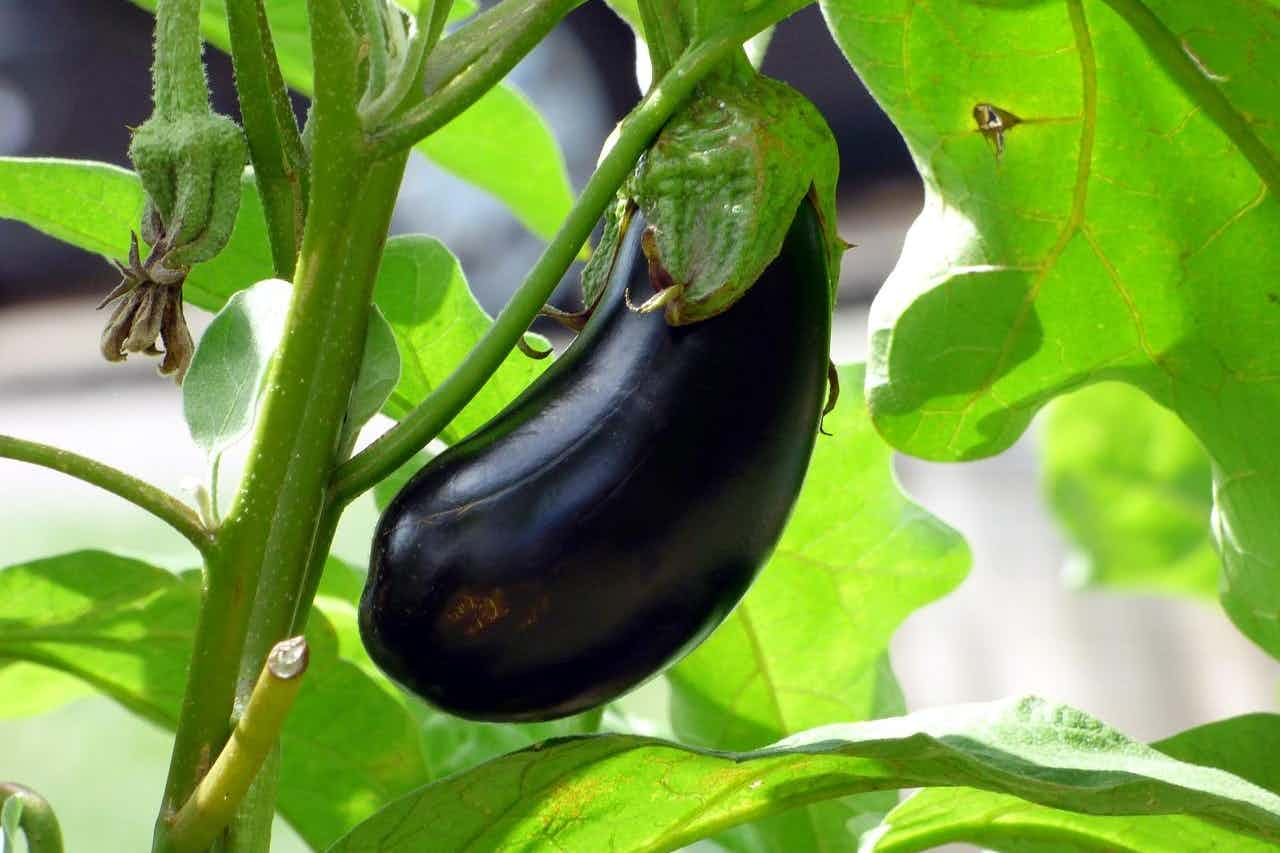While numbers tend to vary, between a quarter and a third of men over 50 suffer from erectile dysfunction (ED). There are various different reasons for this, including lifestyle, diet, and stress. Luckily, if it’s down to those three, it’s easily fixable!
Also, if you get hard, just not hard enough, food can help with that, too. And there are actually foods that act as aphrodisiacs, believe it or not!
However, before we look at the ultimate diet to help prevent and cure erectile dysfunction as well as a few so-called aphrodisiacs, let’s look at other potential causes for ED. It’s essential to be aware of those causes (and how to overcome them, where possible). If you’re only interested in the food angle, then skip right ahead to the dietary tips!
Are you looking to experiment or take things into a different gear in the bedroom? Browse our panel of retailers to find sexy lingerie, toys, and more!
Physical causes for erectile dysfunction
There can be medical conditions that are causing erectile dysfunction. According to the Mayo Clinic, the most common ones are:
- Heart disease
- Clogged blood vessels
- High cholesterol
- High blood pressure
- Diabetes
- Obesity
- Metabolic syndrome — a condition involving increased blood pressure, high insulin levels, body fat around the waist and high cholesterol
- Parkinson's disease
- Multiple sclerosis
- Certain prescription medications
- Tobacco use
- Peyronie's disease — development of scar tissue inside the penis
- Alcoholism and other forms of substance abuse
- Sleep disorders
- Treatments for prostate cancer or enlarged prostate
- Surgeries or injuries that affect the pelvic area or spinal cord
- Low testosterone
Psychological causes for erectile dysfunction
Erectile dysfunction can also be caused by psychological issues, such as depression, anxiety, stress, and relationship problems. It can be as easy as the fear of not getting it up gets in the way of getting it up—it becomes a form of anxiety!
If the underlying cause is psychological, diet alone won’t fix ED. Diet might, however, help improve your mood and make it easier to destress. Many people don’t know you can become depressed if you don’t get the proper nutrients in your diet—diet affects mood. As does sleep. Sleeping at regular hours and getting enough hours of sleep is super important—both for your mood and your physical functions.
Stress can exhaust your body, and if that’s the case, start going for daily walks, do breathing exercises and meditate for ten minutes a day.
If your confidence in the bedroom has been shot to bits by someone less than friendly, you need to change your perception of yourself. In addition to doing things that make you feel confident (such as establishing a life you love, eating well, exercising, going after your goals, and socialising), you’ll need to change your mental picture of yourself.
One of the best ways to change your mental picture of yourself is to record all your wins. Yes, all of them. Every day take a few minutes to go back in time to remember all the successes you’ve had. Close your eyes and remember the good things that you’ve achieved in life. And every night, sit down to record the wins that day—literally write them down. We accomplish a lot more than what we think we do. A win can be making your partner smile, etching your kids from school successfully, going for a ten-minute walk at lunchtime, or finishing a task at work.
Of course, you can focus on your “sexual wins.” Remember times when sex was good or when your partner was satisfied. Also, start thinking about what it would feel like now if you and your partner were both satisfied. Allow yourself to daydream.
If you want to improve your self-confidence, one of the best books to read or listen to is “Psycho-Cybernetics” by Maxwell Maltz. It’s an incredible book that’s bound to change your life if you aren’t already succeeding in every area you want to succeed in.
If you have a partner, work on complementing each other every day—including compliments about their physical looks, personality, and what they do well in the bedroom. Sometimes, one compliment a day is all that’s needed to improve your relationship and boost your libido because, again, it changes perception. This time, it changes your perception of how your partner sees you.
If your overall relationship is on the rocks, so to speak, have a read of this article. While it focuses on long-distance relationships, it covers how to create great relationships in general.
Discussing what you both want in the bedroom and trying new things can also up your arousal levels. In addition to that, reading books and articles on sex can help you find new things that stimulate you more.
This article will further explain ideas for spicing up your sex life.
Another good thing to remember is that the harder you try, the less likely you are to get turned on. You need to relax. Relaxation exercises throughout the day can help with this, as can going into the bedroom with the aim of not getting it up. You’re going there to cuddle, or please your partner, not have an erection. You can even do your best not to get one. That can help if you suffer from fears about not getting hard.
Lifestyle changes that will improve your libido
Some lifestyle changes will improve your overall health, as well as your libido and ability to “get it up.” They are surprisingly simple, yet very few people implement all of them. Give them a go and see what happens:
- Sleep enough hours every night
- Sleep at regular times (lest you be jet-lagged all the time)
- Spend time in the great outdoors—preferably in green areas (you can look into forest bathing for more info)
- Exercise for at least 30 minutes per day—vary cardio, strength building, and stretching (focus on one area per day - there are plenty of videos on YouTube that can help you with what to do)
- Eat a whole foods diet that is also balanced (cut out refined foods and unnatural additives)
- Stay hydrated
- Regulate your intake of alcohol (maximum one drink per day)
- Quit drugs and cigarettes
- Take time out to destress, meditate and do some breathing exercises (five to fifteen minutes per day)
Sex educator and coach Ruth Ramsay told Age Times: "Erectile dysfuntion can be very distressing, but it can help to know there are things you can do about it, around lifestyle and diet. The first step however should alway be a visit to your doctor, to rule out any underlying causes which require medical investigation or treatment. After that, the healthier you can make your lifestyle, the healthier your erection will be! With that as an incentive to eat well, exercise, rest and de-stress, you might find yourself the healthiest you've been for a long time. This might benefit your sex life overall in terms of stamina, flexibility and body confidence.
"If you have a partner, communicating with them about what's happening is important for the health of your relationship. Secrets create worry which creates stress and makes the issue worse. Remember, there is nothing to be embarrassed or ashamed about. A rock-hard erection is not essential for mutually satisfying sexual play; in fact, if your hard-on isn't hard or present at all sometimes, it's an opportunity to explore activities other than penetrative sex. There are the same nerve endings in your penis whether it's hard or not, and you can still experience orgasm when soft.
"As a sex educator and coach, I have often talked to midlife women who say their sex lives with their male partners got better when penetrative sex became less of a focus due to ED symptoms. For this to be the case, you need to be able to approach the change creatively and as a team. This is an opportunity to re-write your sexual scripts, which may have been fixed in a certain 'menu' of activities in a certain order for years. Try new approaches: enjoy sensual touch over the whole body; shop for sex toys together; share fantasies; explore kink. Taking the focus off your penis will help release your fears about not getting hard or hard enough, which, if the causes are psychological, will ironically help you get hard!
"Fast-forward six months of implementing the above changes, and you could be fitter, healthier, have a more varied sexual repertoire, and a more satisfied partner - as well as a hard-again penis."
Aphrodisiacs—are they real?
This is the million dollar question, isn’t it? The answer? Yes, they are real. They are real in that foods can affect how you feel, as well as your libido.
Some aphrodisiacs, such as eating a well-balanced diet and taking a multi-vitamin a couple of times a week, will work in the long run. The Mediterranean diet is often recommended as an easy solution for a whole foods diet. You can also lookup the Blue Zones Diet.
Then, there are more immediate aphrodisiacs. For example, caffeine and spicy foods can improve blood flow instantaneously. Caffeine can further give you an energy and mood boost, as can dark chocolate.
There’s also the psychological effect food has on you. For example, if you associate strawberries and whipped cream with sex, that can help put you in the mood.
Now, let’s have a look at the different foods that work as aphrodisiacs.
Horny goat weed
Yup, that’s a thing. If you haven’t hung out with the raw foodies, you’re excused for not knowing what it is.
Horny goat weed contains icariin, which blocks PDE5. PDE5 is an enzyme that stops erections. So having some in your cupboard won’t hurt! Do, however, check that it won’t affect any medical conditions you have or any medication you may be using.
Yohimbe
Yohimbe is an extract from bark that has been shown to help treat erectile dysfunction. It helps block alpha-2 adrenergic receptors, which in turn helps increase blood flow to the penis. However, it does have side effects, so you should speak with a professional about it before taking it.
L-arginine
The amino acid L-arginine can help relax the blood vessels in your penis. In turn, this can help you get an erection. L-arginine is found in oats, white meat (like turkey and chicken), pumpkin seeds, soybeans, dairy, and peanuts.
L-citrulline is another amino acid that the body converts to L-arginine, so this is another thing you want in your food. You find it in watermelon, as well as in gourds, squash, peanuts, pumpkin, chickpeas, and cucumbers. However, watermelon is by far the best source.
Chilli peppers
It appears that men who eat spicier food have higher levels of testosterone in their saliva. While the study that found this to be the case can’t be called conclusive, hot foods do increase blood flow. A spicy meal before sex, therefore, doesn’t hurt!
Capsaicin, which is found in chilli peppers, also stimulates the pleasure centres of the brain. So while it might not arouse you, it doesn’t hurt to have some!
Zinc
Oysters and other shellfish are high in zinc, which is needed for testosterone production. On the downside, shellfish can increase cholesterol drastically, so eat it in moderation. Likewise, while it’s not recommended to eat a lot of red meat, ground beef and chuck roast contain high zinc levels.
While zinc levels aren’t as high, avocado does contain zinc, and it’s a healthy food! Chickpeas, lentils and baked beans are other vegetarian food sources for zinc.
Vitamin D
Vitamin D is crucial for testosterone production, and most of us get vitamin D from sun exposure. However, in sunny countries, people often avoid the sun. At the same time, in countries with long winters, it gets difficult getting enough sunlight. As a result, you must eat some foods containing vitamin D unless you’re 100% sure you get enough through sun exposure.
Beef liver is an excellent source of vitamin D, as are egg yolks and tuna.
As overdosing on vitamin D through supplements is as bad as having vitamin D deficiency, if not worse, you should get a test before eating supplements.
Folate
Folate is a blood flow booster and, therefore, great for improving blood flow to your penis. Folate can be found in spinach and other leafy greens. Broccoli, liver, asparagus, and Brussels sprouts are also excellent sources of folate.
Magnesium
Magnesium, like folate, can help stimulate blood flow and possibly increase testosterone levels. Magnesium can be found in cereals, green leafy vegetables, seeds, nuts, cocoa, and seafood. Yeah, you heard that right: cocoa. Meaning you might just have found a reason to indulge in dark chocolate.
Ginseng
Ginseng has been shown to improve both libido and fertility. Win-win.
Coffee
One study found that men who drank 1-3 cups of coffee per day were less likely to suffer erectile dysfunction. However, this was a study where subjects self-reported, and the correlation between coffee and ED is unclear. That said, caffeine does increase blood flow—at least temporarily.
It should be noted that you also get increased blood flow when doing cardio. So even if you don’t want to run a marathon any time soon, go for brisk walks, bike, and do cardio exercises (which could be as easy as getting a skipping rope or dancing around the living room) for ten minutes every day. You can also do high impact exercising, swimming, or jogging.
Doing something just before sex that gets your blood flowing in a relaxed manner, such as going for a brisk walk, doesn’t hurt, either. Or go for a proper workout, shower, have a snack, and get to it!
Testosterone boost
Tim Ferriss, the author of “The 4-hour Body”, did some experiments regarding raising testosterone levels and ended up tripling his own testosterone levels. Apart from being physically fit and eating well in general, Ferriss added brazil nuts, vitamin D3, blue ice butter or fermented cod liver oil blend (one or the other) to his diet. He also ate almonds some 24-hours before having sex. You can read the exact measures here.
While this hasn’t been scientifically proven to work for everyone, there’s no saying you can’t try it, granted it doesn’t interfere with medical advice from your GP.
Prostate health
While erectile dysfunction isn’t always connected to prostate problems, it doesn’t hurt to look after your prostate.
Apple peels contain ursolic acid, which appears to be beneficial in fighting prostate cancer, especially when combined with curcumin (the active compound in turmeric) and resveratrol (an antioxidant found in the skin of red grapes, blueberries, raspberries and red skin peanuts).
In men already diagnosed with prostate cancer, there also appears to be a direct link between survival rate and fruit and vegetable intake. The more fruit and vegetables you eat, the more likely you are to survive.
Increasing sperm count
This may have nothing to do with “getting it up." Still, it’s worth considering that tomatoes (especially drinking tomato juice regularly) and carrots seem to help.









